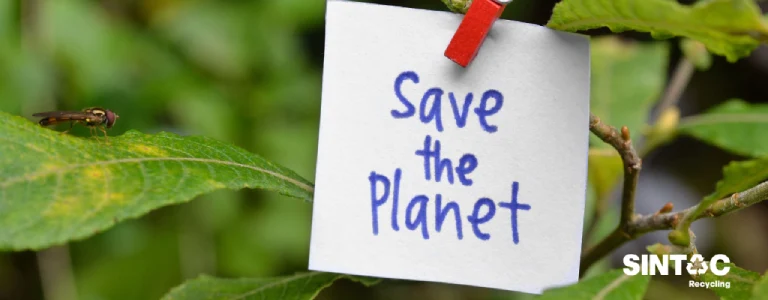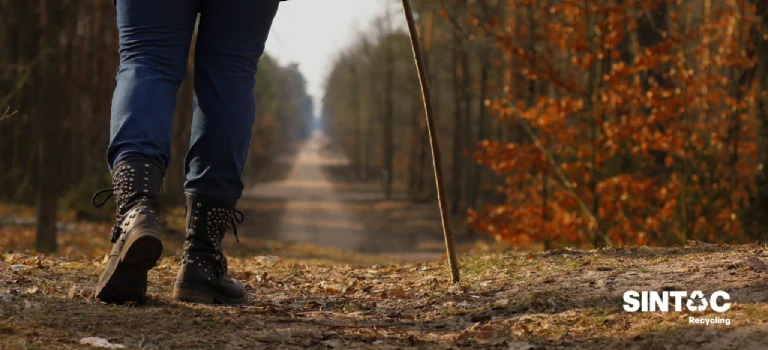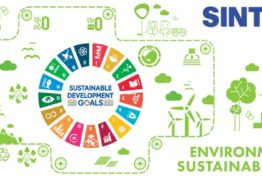What is eco-anxiety?
The loss of biodiversity, environmental degradation and natural disasters have made the preservation of the environment a priority. More and more people – and organisations – are sensitive to climate change and aware of the need to curb it through a sustainable lifestyle that respects the planet. A way of seeing the world that, far from being fleeting, is gaining followers and becoming the norm.
However, in some cases, concern for the environment goes a step further and becomes anxiety, and this is what is known as eco-anxiety. A term coined by the American Psychology Association in 2017 to refer to the “chronic fear of environmental cataclysm that comes from observing the seemingly irrevocable impact of climate change and the associated concern for the future of oneself and future generations“.
But what are we talking about when we talk about eco-anxiety?
Eco-anxiety is an emotional and psychological response to the current state of the environment and concerns about its future. As climate change becomes more evident and threatening, many people experience deep anxiety and distress related to these issues.
It can manifest itself in a variety of ways: from constant worry to great helplessness. People who experience it may be distressed by the extinction of species, the degradation of ecosystems, pollution and natural disasters. These feelings can be further aggravated by other feelings such as uncertainty about the future of the planet.

How eco-anxiety affects people?
Although eco-anxiety can affect people of all ages, it is younger people who are most at risk. This is according to a report published in The Lancet, which shows that climate change and its effects affect the mental and emotional health of 45% of people under the age of 26. Some of the most common consequences are:
- Symptoms of anxiety and depression: People with ecoanxiety often experience symptoms similar to those of anxiety and depression, such as nervousness, sadness, insomnia and lack of concentration.
Translation results
Feelings of powerlessness: The feeling that environmental problems are too big to tackle can bring with it a sense of helplessness and hopelessness.- Social isolation: Concern for the environment can cause some people to become socially isolated. A withdrawal that seriously affects their day-to-day life and relationships.
- Emotional fatigue: Constant exposure to negative environmental news can lead to emotional fatigue. A feeling that makes coping even more difficult.
What is solastalgia?
Solastalgia is the pain and distress people feel when their natural environment degrades due to environmental change, and is a term coined by philosopher Glenn Albrecht for. Unlike eco-anxiety, which focuses on concerns about the global environment, solastalgia focuses on the impact of climate change on the local environment.
For example, people who have lived in a rural community for generations may experience solastalgia when they see their landscape changing due to deforestation or urbanisation, even if they are not thinking in global terms.

Tips for coping with eco-anxiety and solastalgia
Tackling eco-anxiety and solastalgia is fundamental to maintaining good mental and emotional health. It is also essential to combat climate change effectively. Here are some tips that psychology professionals recommend for dealing with these challenges:
- Education and awareness: educating and informing yourself about environmental problems can help reduce anxiety. It will help to better understand the causes and solutions to potential problems and, above all, to have more control over the situation.
- Personal action: Taking steps in your daily life to reduce your ecological footprint can alleviate eco-anxiety. Small changes, such as reducing plastic consumption or saving energy, can make a big difference.
- Connecting with nature: Spending time outdoors and connecting with nature can be therapeutic. Walking in the woods, gardening or simply enjoying a local park can help calm the mind and reduce stress.
- Social support: Sharing your concerns with friends and family can be comforting. Finding online communities or local environmental action groups can also be a great way to connect with others who share your concerns.
- Mindfulness and meditation practices: these techniques can help reduce anxiety and calm you down. Mindfulness can help you focus on the present instead of worrying about the future.
- Seek professional help: If ecoanxiety or solastalgia significantly interferes with your life, considering therapy with a mental health professional who specialises in these areas may be beneficial.
In summary, eco-anxiety and solastalgia are understandable emotional responses to current environmental challenges. However, it is important to recognise these feelings and take steps to deal with them in a healthy way. With education, personal action and appropriate support, we can address these issues and work together for a more sustainable and equitable future.













